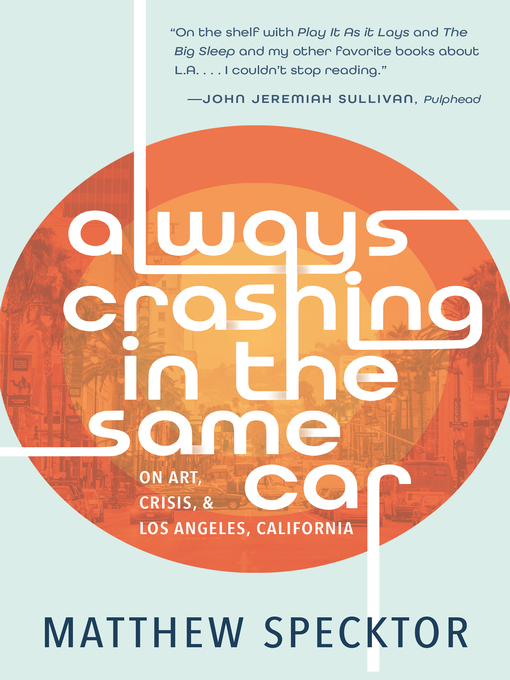A Best Book of the Year at The Atlantic
Los Angeles Times Bestseller
"[An] absorbing and revealing book. . . . nestling in the fruitful terrain between memoir and criticism." —Geoff Dyer, author of Out of Sheer Rage
Blending memoir and cultural criticism, Matthew Specktor explores family legacy, the lives of artists, and a city that embodies both dreams and disillusionment.
In 2006, Matthew Specktor moved into a crumbling Los Angeles apartment opposite the one in which F. Scott Fitzgerald spent the last moments of his life. Fitz had been Specktor's first literary idol, someone whose own passage through Hollywood had, allegedly, broken him. Freshly divorced, professionally flailing, and reeling from his mother's cancer diagnosis, Specktor was feeling unmoored. But rather than giving in or "cracking up," he embarked on an obsessive journey to make sense of the mythologies of "success" and "failure" that haunt the artist's life and the American imagination.
Part memoir, part cultural history, part portrait of place, Always Crashing in the Same Car explores Hollywood through a certain kind of collapse. It's a vibrant and intimate inspection of failure told through the lives of iconic, if under-sung, artists—Carole Eastman, Eleanor Perry, Warren Zevon, Tuesday Weld, and Hal Ashby, among others—and the author's own family history. Through this constellation of Hollywood figures, he unearths a fascinating alternate history of the city that raised him and explores the ways in which curtailed ambition, insufficiency, and loss shape all our lives.
At once deeply personal and broadly erudite, it is a story of an art form (the movies), a city (Los Angeles), and one person's attempt to create meaning out of both. Above all, Specktor creates a moving search for optimism alongside the inevitability of failure and reveals the still-resonant power of art to help us navigate the beautiful ruins that await us all.


